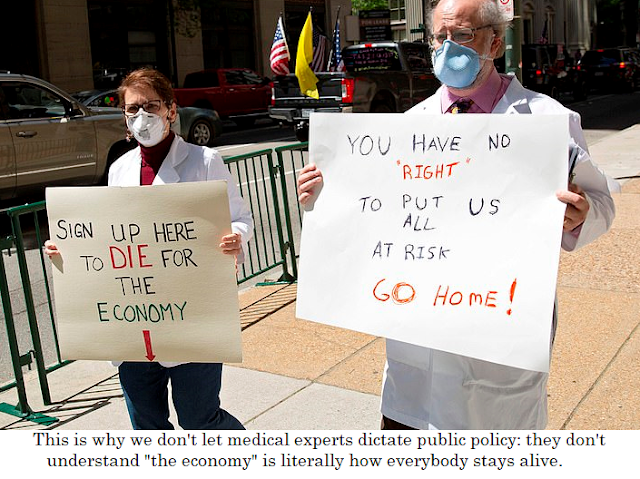The always-indispensable Brendan O'Neill on the politics of lockdown:
This is the ‘public’ that the liberal elite admires: a Potemkin public, a pretend public, a public that has been fairly successfully decommissioned and placed under something approaching house arrest. That liberals and leftists raged for years against a clear, confident and real act of public engagement (the vote for Brexit) and now cheer a hyper-fragmented ‘public’ as it expresses dread about the prospect of a return to normal life is incredibly, historically revealing.It's worth noting that England far more than Canada or even most (if not all!) U.S. States has extreme lockdown rules.
It helps to explain their keenness on the lockdown. It suggests that one of the key things these people admire about the lockdown is that it has broken the public. It has retired those swathes of society that proved so disappointing to the elites in recent years, whether by their political choices or their apparently problematic lifestyles. The public-sector left, the woke-leaning elites and the Remainer wing of the establishment are generally favourable towards the lockdown not only because it has less of an impact on their lives than it does on other people’s, but also because it makes physically, legally real what they consider to be the ideal relationship between their class and the rest of us – that is, one in which they can still proffer their ‘expertise’ and advice on how the masses should be cared for and financed, while the rest of us are silenced, by law, and have been reduced essentially to non-citizens who must await the favour and instruction of the government and our betters.
Some of them use noble-sounding language to justify and celebrate the unprecedented use of law, policing and fear to break up the public and keep us all at home. They say the people are engaged in an act of ‘solidarity’. Staying at home is heroic, they claim. It shows how much we all care. This is entirely false. Solidarity is when active, engaged citizens recognise their commonalities and offer one another assistance in the pursuit of a political goal or a social good. Like the vote for Brexit, for example, which was a clear, free and public demand for more forms of social solidarity against the disempowering dynamic of technocratic rule and the individuating trends of neoliberalism. In contrast, the current fearful retreat from the public realm speaks to an atomised torpor that is the opposite of solidarity, and in which one of our few ‘public’ roles is to agree not to be a burden on the NHS. Stay home, do nothing, don’t impose on the system – this is compliance with authority, not solidarity.
